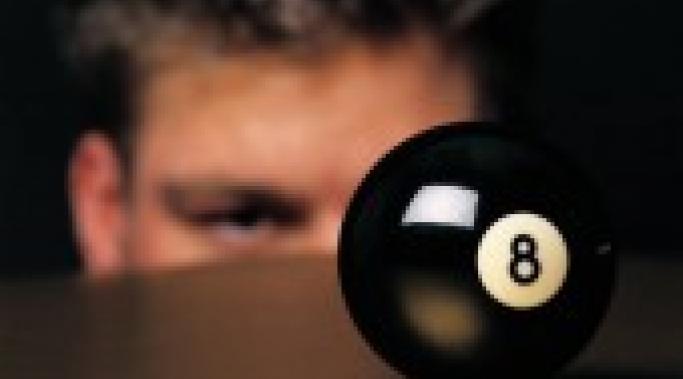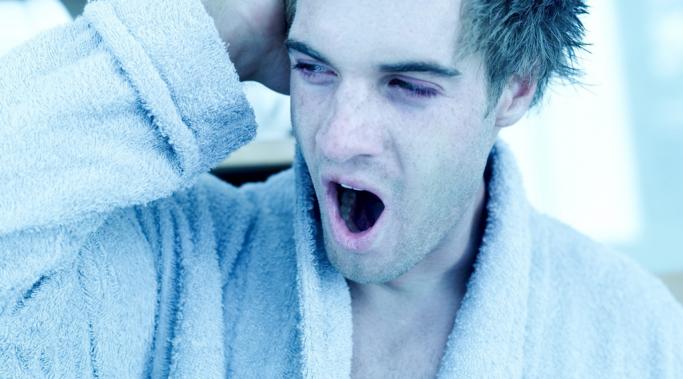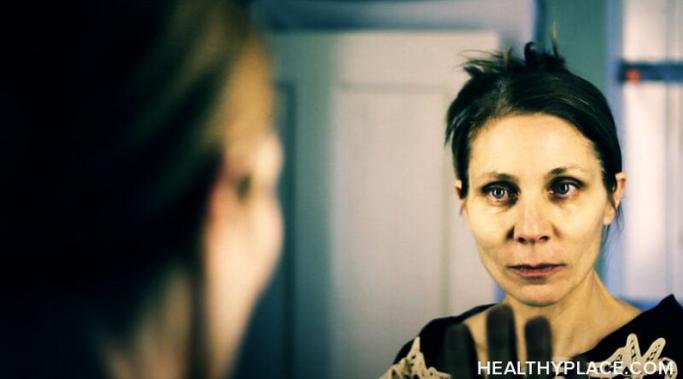I’m sitting on my red, plush couch in my living room and I have started crying. Tears well in my eyes at first while I try to convince them not to roll down my face and splash the back of my glasses. As usual, the tears don’t listen and soon my cheeks and lips and chin are wet with saline. I take off my glasses and put them on the wenge coffee table and my head falls into my hands. Loud crying now, choking sobs wrack my body as I feel the pain of illness that I had been pushing away for so long beat me once again.
And I wonder – will it get better?
Depression – Breaking Bipolar
I have said it again and again, what goes up, must come down and it usually does so with a resounding thud. A crater. An impact that puts you lower in the ground than before you started. In other words, a depression.
And that’s the problem with hypomania. For many people the hypomania itself really isn’t a huge deal (although for some hypomania in and of itself is damaging) but the period afterwards is devastating. It’s the hypomania hangover.
Self-talk is something we all do. In psychology they call it intrapersonal communication – or communication with oneself. It could be the voice of your mother in your head tell you to “take a jacket” or the voice of an old lover telling you that “you’re fat” or simply a recitation of the lyrics to YMCA for an hour at a time. However you do it, we all have an inner voice no matter how unconscious it may be.
Bipolar disorder is associated with extremely high (mania/hypomania) and low (depressed) moods. This is typically seen with emotional changes, behavioral changes, energy changes and so on.
Psychosis, on the other hand is the presence of delusions and hallucinations. Delusions – false beliefs that persist in spite of the existence of contrary evidence – and hallucinations are most closely associated with schizophrenia.
However, symptoms of psychosis can occur in bipolar disorder and depression as well.
Bipolar disorder is an affective disorder, in other words it affects your emotions (among other things). Bipolar disorder symptoms are often about feelings. Well, they're about FEELINGS. I feel HAPPY. I feel SAD. I feel IRRITATED. I feel ENERGETIC.
But one thing that's rarely recognized is that sometimes bipolar disorder is about feeling nothing at all.
I've been studying mental illness for a long time and while I knew the answer to this question, I couldn't really have told you why. This is mostly because I haven't done a lot of work on personality disorders, but I have had occasion to learn more about them recently.
No, bipolar disorder is not a personality disorder, and here's why.
Last night I was feeding my cats and thinking suicidal thoughts - I like to call that a Wednesday night. And I was thinking to myself that no one (save others in my position) understands what that is like - to go from some sort of normal person in the daytime to a sobbing, suicidal headcase at night. I thought about the fact that I have spent eight years talking about this very disease, this very state, this very problem, and yet still, people don't get it. No matter how many words I use, no matter how I phrase it, people simply do not understand.
So what do we do with the lack of understanding by others?
Happy new year to everyone. Thanks to all for joining me for a wonderful year of information, interaction and debate. I have learned a lot and I hope you have too. But in case you missed it, here are the top ten articles people were reading from Breaking Bipolar last year:
Happy holidays, all. I am back from my family sojourn and feeling exhausted from it. Which is odd, actually, because nothing stressful happened. I worked, we ate, we played cards we pretended to be happy (some more than others) and the holiday passed by.
And a giant "meh" was heard by all.
And yet still I find myself crippled with exhaustion and stress post-holiday. Why, exactly, is that?
Last week we talked about five of the top things that we learned about mental illness last year:
Statistics on Prevalence of Bipolar Disorder
How often is Bipolar Diagnosis Mistaken for Depression?
Predictor of Bipolar Treatment Success
Antimanic Treatment Efficacy - Drugs Compared
Are Two Antidepressants Better Than One?
Today we will discuss 6-10 in part two of this article.




